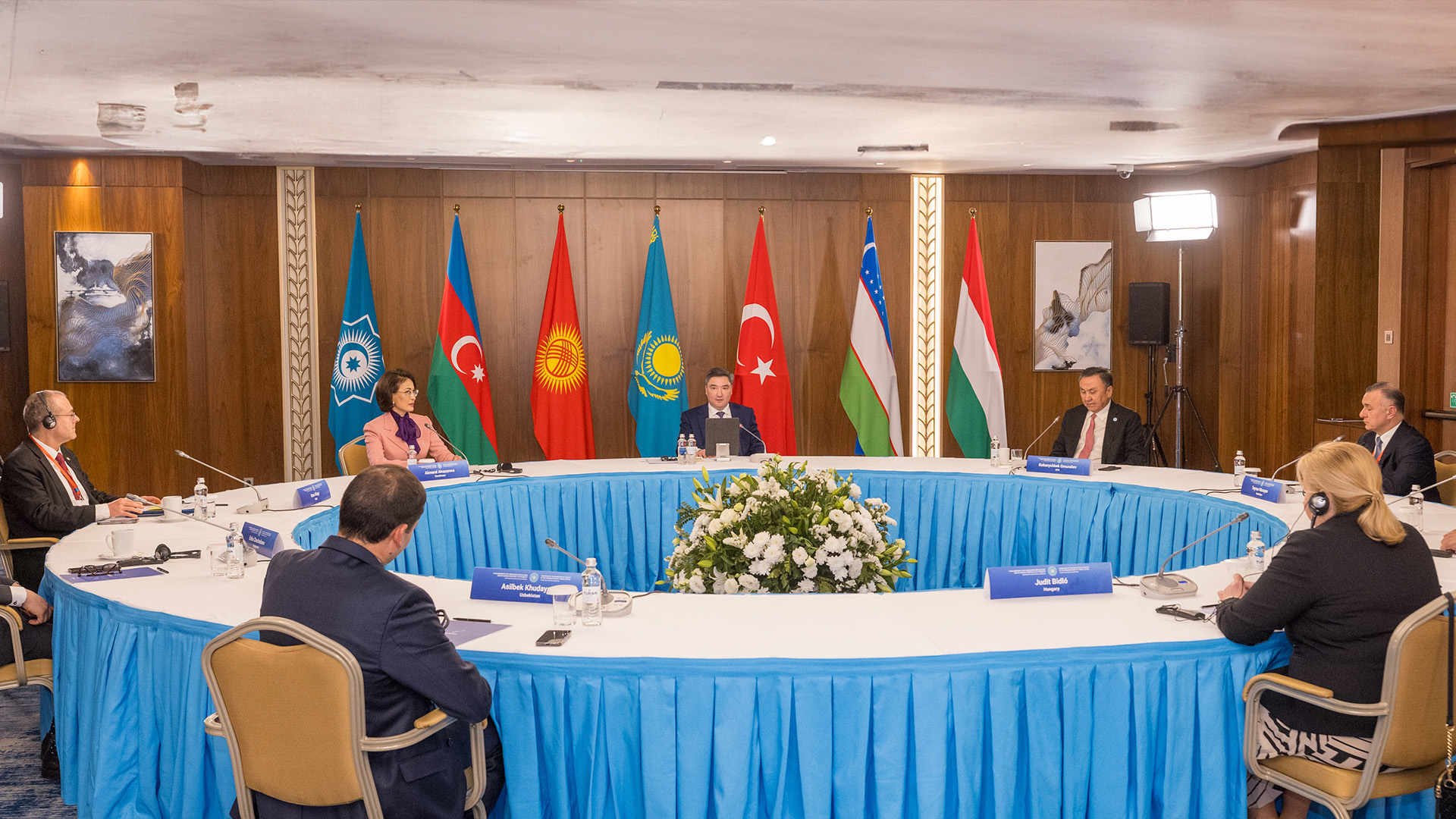ASTANA – Kazakh Prime Minister Olzhas Bektenov held a meeting on April 8 with the Ministers of Health from the Organization of Turkic States (OTS) and Hans Kluge, World Health Organization (WHO) Regional Director for Europe. Akmaral Alnazarova, Kazakhstan’s Minister of Health, delivered a report on the outcomes of the fifth meeting of OTS Health Ministers.

Kazakhstan is currently undergoing a significant healthcare modernization process, including the construction of new infrastructure, establishment of multidisciplinary clinics, and the modernization of medical equipment. Photo credit: Prime Minister’s press service.
The meeting discussed plans to enhance Kazakhstan’s engagement with the OTS, notably through exchanging expertise and transferring modern medical technologies. Proposals aimed at developing healthcare in Kazakhstan and its partner countries were also considered. The meeting participants focused on the importance of a coordinated response by the OTS member states to address global health challenges, reported the Prime Minister’s press service.
Bektenov emphasized that coordinated efforts and close partnerships are important for confronting large-scale health threats. He noted that Kazakhstan is undergoing a significant healthcare modernization process, including new infrastructure, multidisciplinary clinics, and modernizing medical equipment. Kazakhstan is also working to strengthen its pharmaceutical industry.
“WHO provides significant support in our efforts. The result of joint systematic work, including through technical and expert support, led to a decrease in the incidence of diseases of the respiratory system, circulatory system and mortality,” he said, reiterating that Kazakstan is ready to share the experience with other OTS countries.
Health ministers from partner countries noted Kazakhstan’s progress in improving healthcare services. The focus for the next two years will be on developing primary healthcare, provision of emergency care, fighting tuberculosis and other diseases, and pharmacological cooperation, notably with Hungary’s relevant government agencies. Efforts to improve water hygiene were also discussed.
Cooperation with WHO
Interaction with the WHO is carried out within the framework of the implementation of two-year cooperation agreements between the WHO Regional Office for Europe and the Kazakh Ministry of Health. For 2024-2025, key areas of cooperation include universal health service coverage, emergency preparedness, prevention of non-communicable diseases, and implementing the One Health approach.
Kluge commended Kazakhstan’s efforts to reduce premature mortality from chronic non-communicable diseases through comprehensive preventive measures. He highlighted that Kazakhstan is one of only ten countries globally to achieve a reduction in premature deaths from diseases such as cardiovascular disease and cancer.
“The measures that Kazakhstan is taking in the field of prevention have had a huge impact: vaping is prohibited, a strict alcohol policy is being implemented, and a vaccination program against the human papillomavirus is being implemented. Today we are talking about the second phase of our cooperation, which will include the opening of the Academy of Primary Health Care (PHC), where young specialists from Kazakhstan will be trained and become leading specialists in the modern system of providing services at the PHC level,” said Kluge.
Kazakhstan’s healthcare initiatives and investments
Kazakhstan is introducing and implementing the principles of accessible and high-quality primary care. The country has introduced several initiatives, such as advanced nursing practices, early detection screenings for cancer and cardiovascular diseases, and creating competence centers for cardiology, oncology, and endocrinology.
As of 2024, investment in Kazakhstan’s healthcare sector grew by 8.4%, reaching approximately $920 million, with a third of this investment coming from the private sector. Investments in the pharmaceutical industry nearly doubled to $91.3 million. The share of domestically produced medicines is set to increase annually to achieve 50% local production by 2029.
Over the past five years, Kazakhstan has opened 784 new medical facilities, including 467 primary healthcare centers, as part of the National Project for Rural Healthcare Modernization. Life expectancy at birth has also increased by nearly 3.5 years, reaching 75 years.
Following the meeting, the officials signed a Joint Declaration on health matters, a Joint Action Plan for healthcare, and several memorandums of cooperation in personnel training and biological safety.
Health ministers of the Organization of Turkic States (OTS) signed a memorandum on April 7, transforming Kazakhstan’s National Coordination Center for Emergency Medicine into a single platform for cooperation.
